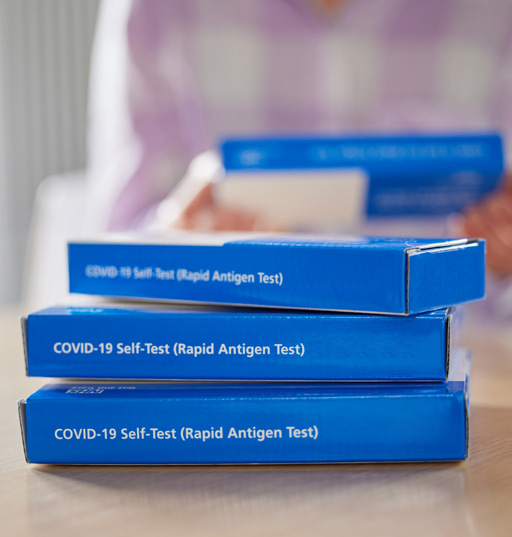The two open board seats have been filled by Laura Mulgrew and Karen Morrison for a three-year term beginning January 1, 2023. Laura, an educator with the Juneau School District, will begin her second term as a PEHT Trustee.
Laura Mulgrew has worked for the Juneau School District since 1993 in various roles, including as a substitute teacher, a classified employee and as a special education teacher.
She has served as a member of the Alaska Education Challenge Safety and Well-Being committee and is currently on the board of the Juneau Education Association. This is Laura’s second term as a Trustee.
“I am committed to providing affordable and quality health care for public education employees,” said Laura. “I want to hear from members about their needs, concerns, challenges and successes with our plans and understand how PEHT is doing in terms of addressing member’s needs.”
Laura advocates for safe and healthy schools for students and staff as well as mutual respect amongst all. She believes it is the responsibility of educators to develop relationships with students that will provide them the opportunity to reach their highest levels of achievement, academically and, socially / emotionally.
In her free time, Laura enjoys spending time with family and traveling. She thoroughly enjoys movies and social opportunities with friends.


Karen is the Director of Finance for Petersburg School District and begins her role as a PEHT trustee on January 1.
She has served on several boards throughout the years and has always chosen organizations that she feels offer real value to the people they serve and live their missions. She says that PEHT resonates with her because she has first-hand experience in seeing the value it provides and support it has offered her in her life and her personal health journey. But it’s not just about her, she says she sees this daily for PEHT members within the Petersburg School District.
“I believe that if you feel strongly about an issue or in this case, an organization, it is important to participate. I am excited to learn even more about the organization and the services it provides to our membership and do what I can to make sure our members are aware of these services that are provided. If there are gaps, I try to find solutions for our members while understanding that it is a balancing act of sustainability for the Trust and providing good quality services at reasonable costs for our members.”
When Karen’s not busy at work for the School District, she loves spending time with family and friends, traveling, hiking Southeast Alaska, reading and sewing... and as a side note she’s a huge fan of PEHT’s Go365 program!
.


Reminder: Your Go365 program year renewed on October 1; therefore, you automatically reverted to Blue Status.
To move into a higher Status, earn more Points and Bucks for rewards and take advantage of what Go365® has to offer, do one of the following:
Need more reasons? Depending on how you get started in the new program year, you can:
Now that you’ve gotten started with Go365, let us guide you through suggested activities that will boost you to Silver Status and earn BIG with Go365!
| Walk 8,000 steps for 30 days | Earn 240 Go365 Points and Bucks |
| Exceed 50 weekly workout points x 4 weeks | Earn 200 Go365 Bonus Points and Bucks |
| Health assessment (complete all six categories) | Earn 500 Go365 Points and Bucks |
| Completing health assessment for first time | Earn 500 Go365 Points and Bucks |
| Complete your biometric screening | Earn up to 2,000 Go365 Points and Bucks |
| Healthy in range biometric results | Earn up to 2,000 Go365 Points and Bucks |
TOTALS: | 5,440 Go365 Points 5,440 Go365 Bucks |
With the cold, flu and other illnesses circulating in our communities, it’s more important than ever to stay healthy.
The flu shot is your best defense against getting sick from the flu and reducing the spread of illness to family, friends and students.
Every flu season is a little different and the illness can affect people differently. Getting your flu shot can prevent severe complications and reduce the spread of illness. Find a convenient location near you to get your flu shot at a Providence ExpressCare or Urgent Care clinic, or your primary care doctor’s office. Download the Providence App or visit providence.org/lp/flu-shots to find walk-in locations or set an appointment for your flu shot.
If there’s one thing Alaskans know about, it’s how to prepare for winter... wax your skis, swap out your tires and double the salmon stash in your freezer.
But this year, as the daylight hours continue to shorten, let’s take a minute to talk about some the basic health risks associated with this season and talk about some easy measures we can all take to improve our physical and mental health.
Whether you’re experiencing your first Alaskan winter or 40th, it’s good to remember that the lack of sunlight can cause real health issues.
ENTER VITAMIN D
Vitamin D is a hormone produced by the skin when exposed to sunlight, and it plays an important role in both physical and mental health.
When people experience low levels of vitamin D, it is regularly reported their tolerance and resiliency to the things in life that create irritation, frustration or depression are felt to be much more intense. But it doesn’t end there, vitamin D deficiency can have major physical consequences as well.
Not only does vitamin D help your body use calcium, regulate the immune system and ward off disease — but more and more research suggests vitamin D is a serious heart-helper. This is because of vitamin D's ability to reduce oxidative stress — a physiological process thought to encourage aging and cell damage. Vitamin D also may help decrease levels of parathyroid hormones that damage blood vessels. Additionally, studies show if you have high blood pressure, atherosclerosis or heart disease, getting enough vitamin D may be a safeguard against some of the damage that comes with those conditions.
Convinced, yet?
We are too! And we have easy tips to make sure you get enough vitamin D this winter.
HEALTHY EATING FOR THE SEASON
In addition to making sure you eat plenty of fruits and vegetables, be sure to make foods rich in vitamin D a staple in your diet. Egg yolks, salmon, tuna, shiitake and button mushrooms are a few good examples, and making a few changes can go a long way to staying healthy this winter.
EXERCISE AND FRESH AIR
A study by Harvard School of Public Health (click here) suggests that exercise also can play in important role in increasing vitamin D levels in adults. They found that three or more hours a week of vigorous exercise — such as running, jogging or skiing — can reduce the risk of heart attack by 22%. But they also found that those who exercised vigorously have higher levels of vitamin D as well as higher levels of HDL (good) cholesterol.
VITAMIN D SUPPLEMENTS
Finally, there are some good supplements on the market and they have been proven to be effective in boosting vitamin D levels in many individuals. But there some precautions people must take. As we’ve mentioned, vitamin D is important for strong bones and contributes to overall good health; however, because it can stay in the body for a long time, getting too much can be counterproductive. This is why it’s important for Alaskans to talk with their doctor to determine whether they should be tested for vitamin D deficiency and work with their healthcare team to decide an appropriate dosage if supplements are deemed necessary.
Benefits for non-emergency medical travel may be payable for transportation by commercial airline (coach class only, with at least a 14-day advanced fare) or ferry from the place where the illness or injury occurred to the nearest area where necessary professional treatment can be obtained, unless the plan administrator finds a longer trip is necessary.
For reimbursement consideration, commercial airline flights may only be scheduled for departure 1-2 days in advance of the first appointment or 1-2 days after the last appointment related to the condition being treated.
Consideration for additional days may be given upon approval by the plan administrator.
All non-emergency commercial travel must be pre-approved by the plan administrator (or their designate) using the “Public Education Health Trust Non-Emergency Medical Travel Request Form” or no benefits will be provided. The form can be found at pehtak.com.
Contact the Health Trust by phone. In Anchorage call (907) 274-7526; outside of Anchorage call (888) 685-7526. Business hours are Monday- Friday, 8 a.m.-5 p.m. (AKDT).
TRANSPORTATION BENEFITS
Transportation benefits in any one calendar year will be limited to two round trips.
Transportation benefits apply only to the illness or conditions covered under this plan. They do not apply to dental care benefits, vision services, routine care or preventive care exams unless approved by the plan administrator.
A local physician must certify that needed services are not available locally. Transportation benefits for any foreign healthcare will not be covered, including Canadian healthcare.
Transportation benefits will not be given for diagnostic or second-opinion diagnosis unless diagnostic services cannot be provided locally and are deemed medically necessary by the plan administrator. The physician must provide written certification or detailed medical documentation of the existing condition in advance of the trip.
Non-emergency transportation charges will only be allowed for a patient who is a covered person, except for the following circumstances:
After the travel has occurred, a “Public Education Health Trust Non- Emergency Medical Travel Completed Form” must be submitted with the boarding passes and the receipts of the travel, signed off by the attending physician, or no benefits will be provided. All information must be sent to EBMS.
Diabetes is one of the top 5 chronic conditions in the United States. More than 37 million Americans live with diabetes and 8.5 million don’t know they have it. 1Poorly controlled diabetes is linked to more serious conditions such as cardiovascular disease, kidney failure, dialysis, blindness and amputation — conditions that greatly diminish quality of life.
LEARN HOW TO MANAGE YOUR DIABETES
Although diabetes has no cure, you can take steps to manage the disease and live a long and healthy life. 2Work with your health care team to learn more about the disease and develop a self-care plan.
COPING WITH THE DISEASE
Figuring out your “new normal” of living with diabetes can be overwhelming. That’s why it’s common for people to experience stress, anger and depression. Going through these emotions is a normal part of the journey but learning how to manage them is the key to a healthy life.

Carr‘s stores are now in network. Get up to 8 COVID-19 at-home test kits for free using your Optum Rx insurance.